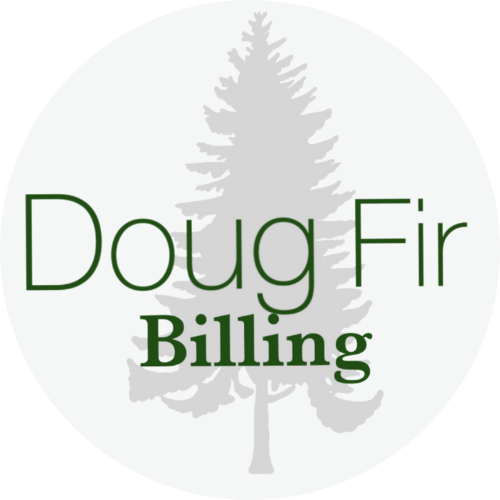How Can I Learn Medical Billing Online
Are you wondering how you can learn medical billing online? You are onto something good with that career choice. Some people may say that you must take in-person classes for this job. The good news is, they are wrong. Online medical billing classes are an excellent choice if you're interested in this industry.
Medical billing is a crucial piece of the modern American healthcare system. And the great thing is that, unlike being a doctor or nurse, it doesn’t require extensive schooling. It demands some patience and attention to detail and a willingness to keep up with changes. But it will not keep you in school for 12 years or add hundreds of thousands of dollars in student debt to your life.
And online medical billing education isn’t only for those who want a career in it. Private practice healthcare providers also can learn medical billing to use in their practices.
If you have questions about medical billing for your practice, the team at Doug Fir Billing is here to help. We serve a variety of clinics and nonprofits and would love to chat about your needs.
First, What Is Medical Billing?
There is no doubt that the first step into this dynamic field is education. But before we dive into your options to learn medical billing online, let’s clarify what it is.
Medical billing is one part of the overall healthcare insurance billing cycle. Doctors and other covered providers who accept insurance need to use this process to receive payment.
In short, procedures and medications all have codes attached to them. These codes tell the insurance companies how much to pay out to the doctor or practitioner for any given patient interaction. A medical biller is a specialist who makes sure this information has proper formatting on the forms for reimbursement.
A medical biller may help troubleshoot problems with payments for providers. They can post payments and run reports so that providers know how much patients owe for services.
Anyone who deals with health insurance in their practice needs medical billers.
This group can include:
Hospitals
Doctors and Dentists
Acupuncturists
Extended Care Facilities
Physical Therapists
Skilled Nursing Facilities
Nonprofit Medical Clinics
The Avengers (Ok, we made that one up. We think they have universal healthcare. But you get the idea.)
Medical billing professionals work as the go-between in the relationship between healthcare professionals and insurance companies. Processing, submitting, and following up on claims requires a biller of some sort.
Without medical billing allies, healthcare providers would either have to do it all themselves or wouldn’t receive payment from insurers. Highly-trained medical billers who are efficient and detail-oriented can increase a provider’s revenue.
Different Ways to Learn Medical Billing Online
With that little bit of knowledge under your belt, let’s return to the task at hand. How do you become a claims specialist with online medical billing classes?
All online education is not created equal. The quality and breadth of the courses can vary widely from option to option. Accreditation and certification choices look different from each class, as well.
You need to be clear about what your expectations are for yourself and for what you will get out of the course. Consider the following questions:
How much time can you commit to a course of study?
How much money can you put toward your education?
Are you self-motivated and able to stay focused without others around you?
Do you intend to pursue this as a full-time, lifelong career?
Answering these questions will help guide you to the best fit as you pursue a job in medical billing. In general, you have three options
1. Get a Bachelor’s Degree
A fully-accredited four-year degree in medical billing will undoubtedly help prepare you for the job. You will plunge into the technical know-how of medical coding, and a BS course also includes classes on anatomy and physiology.
Because of its time and financial commitment, a full degree isn’t always the right choice. But it can be the perfect fit for those who want the diploma and have the resources to achieve it. A degree opens many doors for jobs and can help you command a higher salary. It can also be an excellent entry-point for people interested in other healthcare jobs.
And even in a four-year program, much of the learning can happen online. Plenty of options exist that include online learning.
2. Get an Associate Degree
For those who would prefer a quicker pathway to work in the medical billing field, a two-year associate degree is a great option. Many online schools and community colleges offer this track. It is a faster and less expensive way to achieve your goal than pursuing a bachelor’s degree.
A typical associate program requires about 60 hours of coursework and provides you with a certificate upon completion. If you complete this line of education and then decide you’d like to pursue a full four-year degree, you may be able to transfer your associate credits.
3. Complete an Online Medical Billing Course
For most people interested in a medical billing career, this plan is the way to go. Entirely online options are the most affordable path to medical billing, and many prepare you to start working in less than a year. When looking at the time and financial commitment, an online course is a win-win.
And since these courses do not require in-person class time, they are the best fit for those with complicated schedules. You can complete your studies when it works for you.
4. Apply For a Billing Job and Try It Out
Sometimes, you may be able to secure a placement as a medical biller and learn on the job. This can have a steep learning curve, so having the background of an online training option is still ideal. But if you can get in with the right provider, you can have a ready-made career.
Which Choice is Best?
When determining the right way to learn medical billing, you may feel overwhelmed by the options. So it really comes down to time, money, and ultimate goals. Some hospitals and large practices require their billers to have a degree. If you have your heart set on working in a large setting like that, you may need to commit to getting the diploma.
But for most other settings, online training is sufficient to get started. This plan is perfect for:
Private-practice providers who want to do their own billing
Medical receptionists who want to add to their skillset
Adults looking for a new full-time or part-time career in a growing field
Stay-at-home parents who would like to earn some extra income
Anyone else interested in working in the medical billing field
Doug Fir Can Help
Whether you are new to medical billing or are a provider who is ready to outsource it, Doug Fir Billing is here to serve. We offer consultation services along with full medical billing options for your practice. Reach out today to get started.

